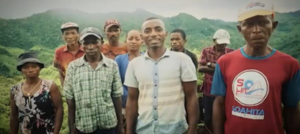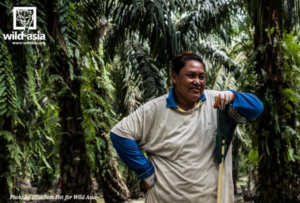Kellogg is one of the original plant-based companies.
Our founder understood the importance of using quality ingredients and giving back to communities. Naturally, farmers and their workers are at the heart of these ideas.
Kellogg’s Better Days® Promise advances sustainable and equitable access to food by addressing the intersection of wellbeing; hunger; sustainability; and equity, diversity, and inclusion.
Through that Promise, we created Kellogg’s Origins™ – a programme that supports farmers, workers, and agronomists globally, including women and smallholders. After all, they are the people who grow our food and steward our lands and waters.
We help support farmers’ climate, social, and economic resiliency. We also work with partners throughout our supply chain, like ingredient suppliers, research institutions, and non-profit organisations to provide farmers and workers with training and technical assistance.
Together, we have helped farmers improve their farm productivity, regenerate soil health, better protect species and habitats, reduce greenhouse gas emissions, and improve their livelihoods in ways that protect human rights.
Sourcing Sustainable Vanilla with Symrise
Our relationship with Symrise, our vanilla supplier, is a prime example of this positive partnership.
Located in the northeast of Madagascar’s gorgeous Sava vanilla farming region, Symrise produces 100 percent sustainably sourced vanilla through the Bridging the Gap programme partnership with Kellogg.
Farmers were trained on climate-smart agricultural practices that helped them improve their productivity and reinforce community engagement, trust, and solidarity. The big key was farmers reconsidered their previously held beliefs about regenerative agriculture practices and adopted new farming practices.
They now have a strong and consistent partner in reforestation that helps them be more confident. And they’re committed to transparency and the traceability of their vanilla.
A significant component of this is a respect for human rights. The program Symrise put in place helped empower women farmers and enable them to be strong leaders in their community. Farmers and their workers gained access to affordable health services, reliable education for their kids and income diversification to improve living incomes.

Vanilla farmers in Madagascar. Credit: Kellogg Company
“We can take leadership, just like men do,” said Marguerite, who works as an internal controller. “I learned many things I would never have known, thanks to this role.”
Another farmer told us, “March is not a difficult month anymore; I don’t need to sell my vanilla at half its price. And I could hire workers to help me on my plots for the first time.”
The responsible of nursery trees produced 10,000 plants in 2022, which allows farmers to access plants for their own reforestation.
“I improved the productivity of my vanilla plot from 45kg to 130kg, thanks to the new techniques I learned,” the farmer said.
Producing People Positive Palm Oil with Wild Asia
Another example of our Origins™ programme work is our collaboration with Wild Asia, which began in 2020.
Wild Asia, established in 2003, is a social enterprise based in Malaysia. Their mission is to inspire change from within the private sector, supporting initiatives that shape a better future for our environment, diversity, and people. Over the last decade, Wild Asia has been working to understand the principles of sustainable production by educating producers and supporting their efforts toward Roundtable on Sustainable Palm Oil (RSPO) certification. Through various programs, Wild Asia has been able to help support disadvantaged communities by engaging them to design solutions that fulfill basic needs and livelihood in an affordable and sustainable way.
One of these programmes is The Wild Asia Group Scheme (WAGS), which focuses specifically on the challenges of independent small producers. It aims to help them improve farming practices and support them towards compliance with international standards, such as RSPO.

Palm grower in Malaysia. Credit: Kellogg Company
Last year, Wild Asia organised an incredibly impactful trip to Kampar, Perak, Malaysia, that included members of Kellogg’s Sustainability team. The group was able to spend time with WAGS smallholders that included the Orang Asli people, who were the first group of indigenous smallholders to be RSPO-certified in Malaysia.
The tour also included a visit to one of Wild Asia’s bio-farms. The farm uses innovative regenerative agricultural techniques that help improve soil health, conserve soil diversity, and promote palm growth. And this fits into Wild Asia’s broader strategy: lift smallholder profit per area – and, in doing so, livelihoods – through better yields, all at a lower cost to helping the farmer generate additional income.
While my Kellogg colleagues had an amazing visit to Malaysia, it also reminded them of the work left to do. There are still many local communities and workers who continue to be neglected in global supply chains. They have yet to be recognized for their irreplaceable contributions.
The trip also helped us, as a company, see where some of the disconnects might be between our palm oil initiatives and the actual farmers on the ground. We can have the best intentions when we develop a particular aspect of our Origins™ program, but if it’s not practical for the farmer it’s not best for anyone.
Because Kellogg is committed to creating better days for 3 billion people by 2030, we encourage other companies in our supply chain to contact us if they want to get involved with any of these initiatives.
We value collaboration and, as the examples above illustrate, are always open to working with other partners, such as our suppliers and fellow members of The Consumer Goods Forum. Through our collective efforts, we have been able to positively impact the local communities in our supply chain, and as more industry actors work together, we can make a real difference worldwide.
